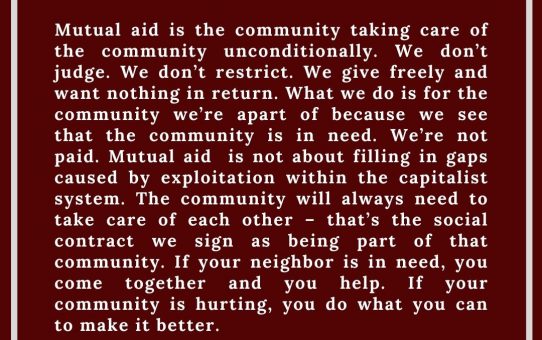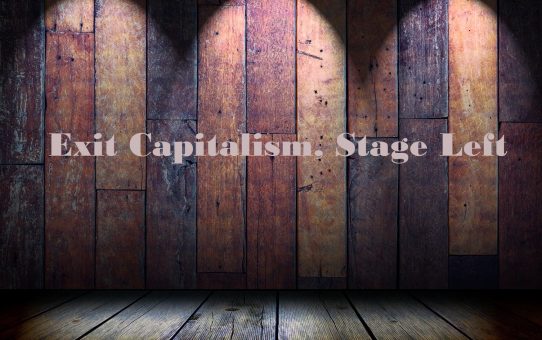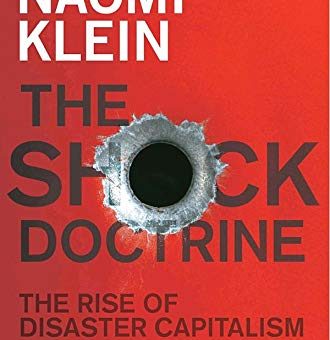Author: Analisa Brewer
Exit Capitalism, Stage Left Episode 8 Out Now!
The eighth episode of Exit Capitalism, Stage Left is out now. This podcast is supported by The Maggie Phair Institute for Democracy and Human Rights. We continue with our new format for this episode... Read MoreExit Capitalism, Stage Left – Episode 7 Out Now!
The seventh episode of Exit Capitalism, Stage Left is out now. This podcast is supported by The Maggie Phair Institute for Democracy and Human Rights. The seventh episode of Exit Capitalism, Stage... Read MoreSolidarity In The Workplace: Resources for Unionizing
Unions, throughout their history here in the U.S., have brought us things like the 8-hour workday, safer workplaces, family leave, and protections against discriminations based on race and sex. But th... Read MoreWhy Capitalism and Human Rights Don’t Mix: A Recommended Reading List
The history of capitalism is the history of exploitation – and exploitation and human rights cannot and do not coexist; they are inherently at odds with one another. That means that capitalism i... Read MoreExit Capitalism, Stage Left – Episode 6 Out Now!
The sixth episode of Exit Capitalism, Stage Left is out now. This podcast is supported by The Maggie Phair Institute for Democracy and Human Rights. This episode features special guest Matt Milhol... Read MoreThe Housing Crisis is Getting Worse – Especially in the Inland Empire
It all started during the COVID-19 pandemic. Suddenly, apartments realized that studio or one bedroom apartments were a hot commodity – hotter than they had ever been before. Single people didn&... Read MoreExit Capitalism, Stage Left – Episode 5 Out Now!
The fifth episode of Exit Capitalism, Stage Left is out now. This podcast is supported by The Maggie Phair Institute for Democracy and Human Rights. This episode touches on the idea of disaster ca... Read MoreWhat is Disaster Capitalism? Looking Towards Naomi Klein.
Since schools and workplaces have resumed regular operations, the stock market has been up and capitalism once again is saved. Saved at the price of public health, welfare, and safety. But this is n... Read MoreExit Capitalism, Stage Left: Episode 4 – What Is Mutual Aid?
The fourth episode of Exit Capitalism, Stage Left is out now. This podcast is supported by The Maggie Phair Institute for Democracy and Human Rights. This episode focuses on defining what mutual ai... Read More- 2 of 4
- « Previous
- 1
- 2
- 3
- 4
- Next »






